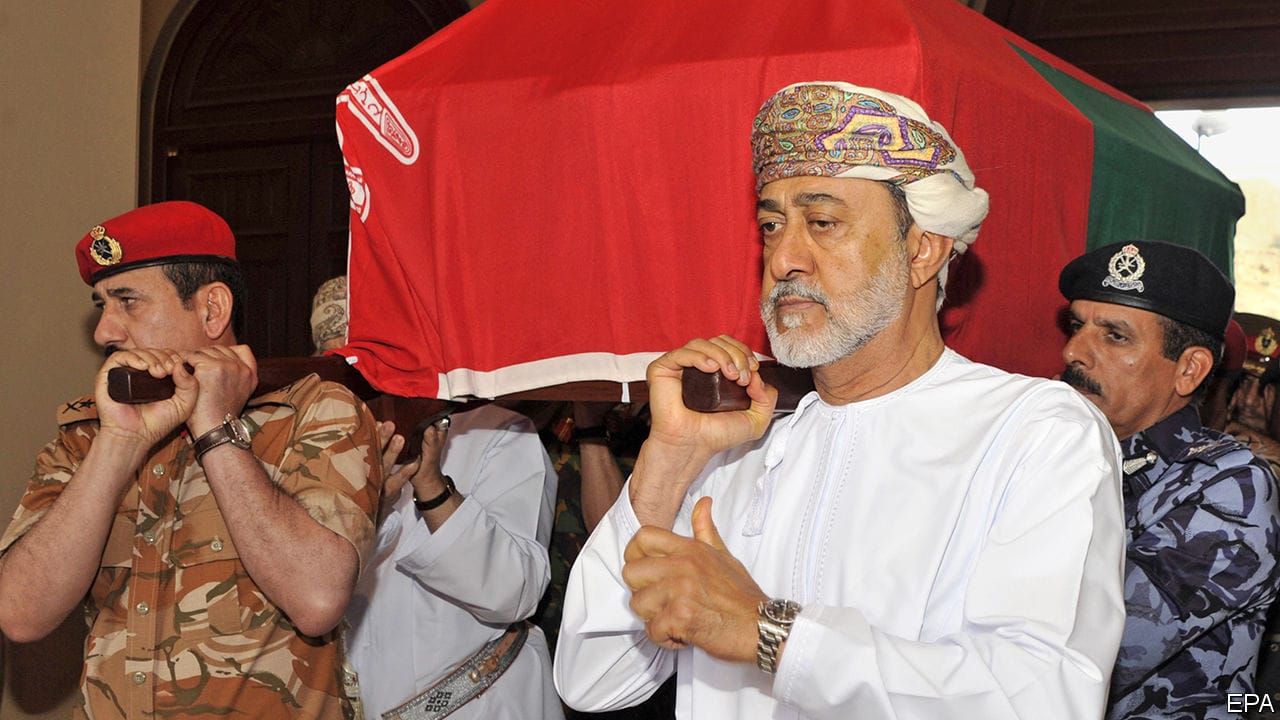- by MAJDAL SHAMS
- 07 28, 2024
-

-
-
Loading

Loading

SULTAN QABOOSUN of Oman left little to chance. Long before he died he sealed two envelopes containing the name of his chosen successor—and a back-up, just in case. Hours after his death was announced on January 10th, relatives gathered to open the envelope. Everyone suspected the candidate would be one of his cousins. Which one was a surprise: not Asad bin Tariq, who had been elevated to deputy prime minister in 2017, but Haitham, a longtime diplomat. Still, the succession went off without a hitch. The new sultan swore an oath and pledged to continue the policies of the man who built the modern Omani state.Sultan Qaboos seized power from his father, with British help, in 1970, when he was 29. The older man ruled as a recluse. When he was deposed Oman had just three schools and 10km of paved roads. Sultan Qaboos changed all that. Though it is not as oil-rich as its neighbours, in 2010 Oman was ranked by the as the country that had developed most over the previous 40 years, ahead even of China. The Sultan also charted an independent foreign policy: fond of Britain, willing to host Israeli prime ministers, but also happy to meet Iranian ayatollahs and Chinese businessmen.